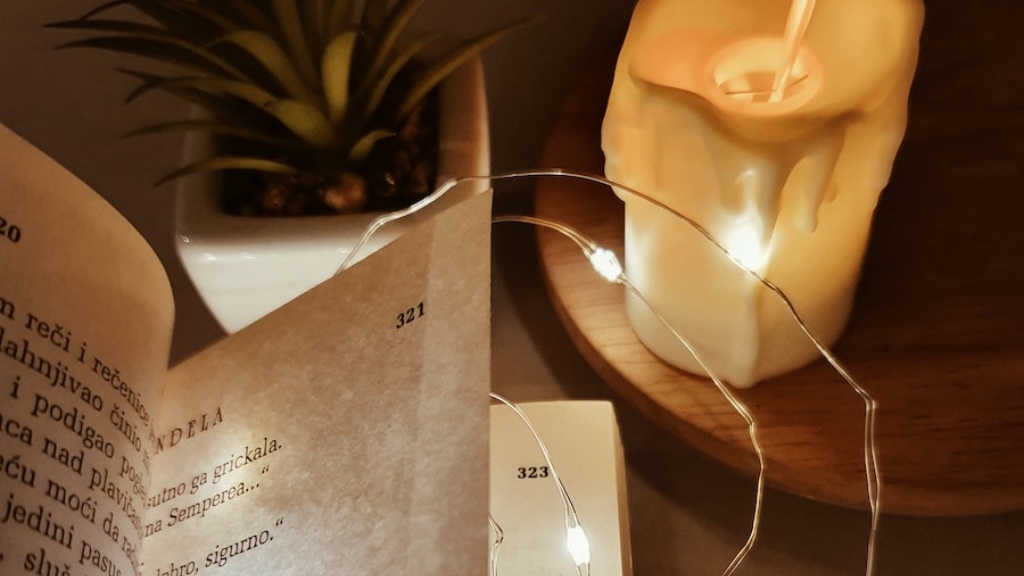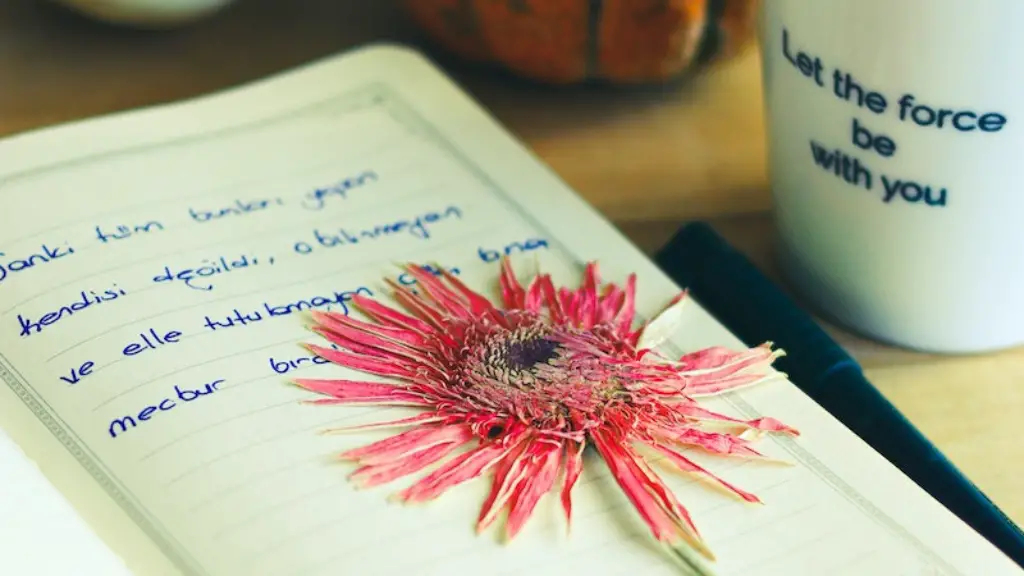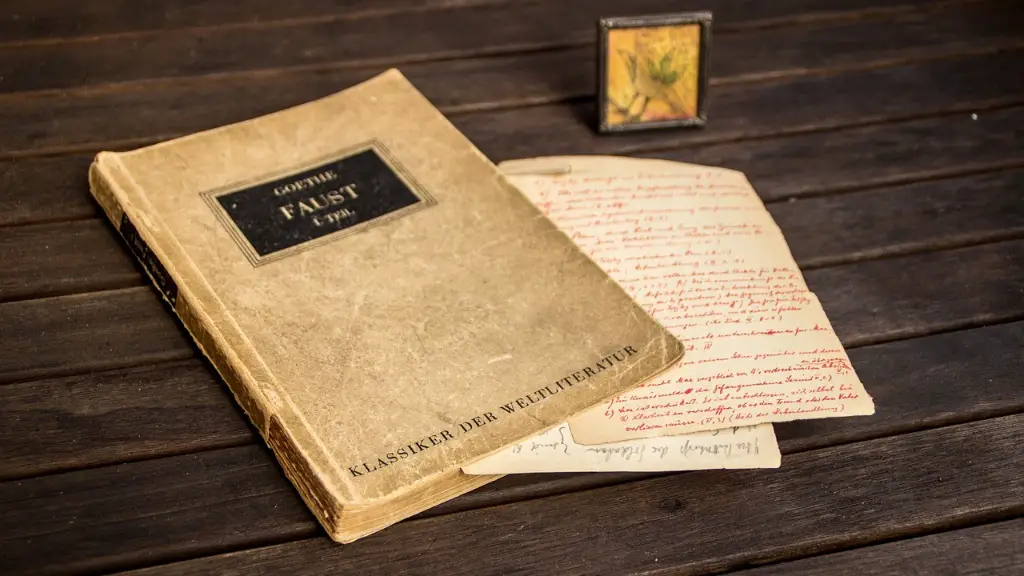Understand the Components of a Poem
Poetry has been around for centuries, captivating readers with its beauty. Knowing how to critique poetry can be a valuable skill for anyone who wants to understand its layers and techniques better. To critique a poem effectively, it’s essential to know what goes into making up a poem and to recognize common forms and devices.
Poems are composed of a variety of different elements, each of which contributes something to the final product. The two main elements are form and content. Form refers to how the poem is constructed, while content is the message itself. Other elements include diction, imagery, figurative language, and tone.
Form dictates the structure of a poem, with different types such as sonnets, odes, and elegies. Each has its own distinct parameters and guidelines, which determine the poet’s ability to advance the content of the poem and how the reader will experience it.
Imagery is important to any poem and refers to the way language is used to create images in the reader’s mind. This can be achieved through such techniques as metaphor, simile, and personification. Figurative language also helps to bring the poem to life by adding emotion and color to the words.
Finally, the tone of a poem is determined by the combination of all the elements and reflects the mood and attitude of the poet. It conveys a subtle message to the reader, allowing them to experience the poem on an emotional level.
Visit the Poem
Once a basic understanding of the poem’s components has been established, it is time to visit the poem itself. While reading, use context clues to help understand the tone of the poem and pay attention to any technical aspects such as meter, rhyme, and repetition.
Consider how certain words are used and take note of any images and metaphors, as they may be hinting at something important. Also note the pacing of the poem, as faster or slower verses can create a different feeling of movement.
Look out for unusual choices of language and check if they offer clues as to the poem’s overall message or the poet’s intent. Pay attention to any major shifts in the poem’s mood and note the impact it has on you.
Analyze the Poem
After having visited the poem, it is time to analyze it. Start by looking at the imagery and figurative language and determine how successful it is. Identify any patterns such as repetition of words, phrases, or techniques and consider how their use contributes to the meaning of the poem.
Look at the poem’s structure and ask yourself if it enhances or detracts from its impact. Analyze the form and decide if the poet has used it to the fullest potential. Also, pay attention to the overall tone and try to determine how it ties into the content of the poem.
Ask yourself how well the poem conveys the intended message and how effectively it conveys emotion. Also, consider how the elements of the poem work together to create an impactful work. Finally, contemplate how you felt while reading the poem and how it made you think or feel.
Once the analysis is complete, it is time to discuss the poem. An effective way to start is to identify the main elements of the poem and how they contribute to its overall impact. Then, share your interpretation of the poem and your opinion about its effectiveness.
Be sure to include evidence from the poem to support your opinion and be prepared to have an open conversation with anyone who wishes to challenge your stance. After listening to others’ views, consider if your opinion has been swayed and explain why or why not.
You can also share the poem with others and ask them to critique it themselves. This will help to develop your own analytical skills, as you will be exposed to different interpretations and ideas.
Compare the Poem to Other Works
Once you’ve discussed the poem, it is time to compare it to other works. Consider how it compares to other poems with similar themes or structures, or read how critics have reviewed similar works. You may also want to compare it to other works by the same poet, or compare it to different genres, styles or forms.
This is a great way to gain a better understanding of the poem and to evaluat its success. Consider how different elements have been used, and how the poem stands out compared to others.
Publish the Critique
After comparing the poem to other works, the final step is to write and publish the critique. When writing, provide evidence to support your interpretation, and consider how different elements contribute to the poem’s impact. Also, be sure to discuss how the poem delivers its message and if it leaves an impact upon the reader.
If publishing the critique, consider how to make it accessible to a wider audience. Explain the poem and its components in simple terms, so as to engage with readers who may not be familiar with the technical aspects of poetry. To finish, edit and proofread the critique and ensure that it captures the essence of the poem effectively.
Make the Critique an Ongoing Activity
Critiquing poetry does not have to be a one-time activity. It can become an ongoing learning process, and is a great way to broaden knowledge of poetry and stay sharp and creative. Don’t be afraid to re-read the poem and ask for feedback from other readers.
Make it a practice to analyze different types of poems and develop an understanding of the craft. Doing so will help to refine critiquing skills and make critiquing more enjoyable and insightful.
Evaluate the Poem’s Impact
When critiquing poetry, one must take into consideration the poem’s impact on the reader. In addition to looking at the poem’s structure and content, the critic should consider the poem’s overall effect on the audience. Thought should be given to how the poem stands out, what it contributes to the literary landscape and if it effectively communicates the poet’s message.
This can help to provide an overall picture of how successful the poem is and how it is affected by different elements. It is also important to consider how certain moments within the poem contribute to its overall impact.
Preserve Inspiration and Influence
When critiquing poetry, it is essential to be aware of any potential influences or inspirations behind the poem. This can be done by researching the poet’s background and studying other works by the same poet, as well as works by similar poets. Doing so can help to gain a deeper understanding of the poem and its sources of inspiration.
In addition, it is important to consider how the poem has been received by others and its potential to impact upon future works. By exploring these avenues, the critic can gain valuable insights into the poem and how it was brought to life.
Examine Cultural Implications
When critiquing poetry, it is important to consider the poem’s cultural implications. Take into account how the poet’s use of language and imagery contributes to the poem’s impact and how it engages with broader social ideas or themes.
Pay attention to any underlying messages or implications that may be present, such as gender, class or race. Considering how the poem performs or fails to perform in relation to such themes can provide valuable insights into the way it is received and its wider implications.
Consider Relevance to Modern Life
Finally, when critiquing a poem, it is important to evaluate the poem’s relevance to modern life. Note how the poem responds to current issues and consider how it stands out from other contemporary works. Examine whether the poem is timeless and capable of evoking the same feelings in future generations.
Pay attention to any hints of nostalgia or longing for earlier times and contemplate how the poem reflects upon the current state of the world. By evaluating the poem’s relevance, the critic can gain a better understanding of the context in which it was composed.


